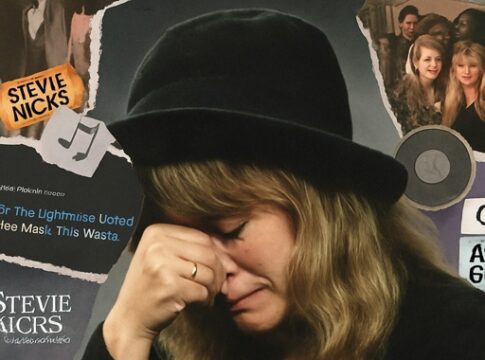Stevie Nicks’s recent comments on abortion didn’t just stir a cultural hornet’s nest—they exposed a raw nerve in America’s moral debate, leaving listeners grappling with the haunting implications of celebrity influence over life-and-death convictions.
Stevie Nicks’s Unvarnished Truth: The Shockwave of One Statement
Fleetwood Mac’s legendary songstress Stevie Nicks recently made headlines for her candid comments regarding abortion—a moment that, for many, felt less like a celebrity soundbite and more like a seismic cultural event.
Nicks’s words were not draped in euphemism or softened by ambiguity. She declared her abortion as transformative, suggesting if she hadn’t terminated her pregnancy, the iconic music of Fleetwood Mac might never have existed at all. Her assertion didn’t just ignite controversy; it forced Americans to confront the uncomfortable proximity between creative legacy and the value of human life.
Abortion didn’t make your voice possible, Stevie Nicks—it silenced another’s forever. No career, no fame, no art is worth the life of a child. https://t.co/xl42K8L472
— Lila Rose (@LilaGraceRose) November 8, 2025
Nicks’s framing of abortion as a mechanism for artistic liberation unsettled listeners across the ideological spectrum. For some, it invoked empathy—an artist’s desperate calculus between personal dreams and parental responsibilities. For others, it sounded an alarm about the normalization of abortion as a pragmatic solution to inconvenient life circumstances. The intensity of this reaction speaks volumes about the role celebrities play in shaping, and sometimes distorting, public perceptions of deeply personal ethical choices.
Celebrity Influence in Ethical Debates: Amplifying or Distorting?
Celebrity culture often blurs the lines between private experience and public advocacy, but Nicks’s narrative went further. By linking her abortion to the very existence of beloved music, she elevated her personal decision to a cultural necessity. This creates a problematic precedent: it risks equating artistic contribution with moral justification, implying that the creation of beauty or cultural value can outweigh the loss of potential life. Such a perspective challenges the foundational American conservative principle that every life is inherently valuable, regardless of circumstance or future accomplishment.
The American conservative worldview aligns closely with the idea that individual rights must be balanced with the protection of society’s most vulnerable members. When Nicks’s story is dissected, it raises an implicit question: Should the potential for greatness ever supersede the right to exist? This is not a new dilemma, but her celebrity amplifies it, thrusting it into mainstream consciousness where the lines between personal narrative and public policy are increasingly blurred.
Singer Stevie Nicks has said her 1979 abortion was justified because having a baby would’ve “destroyed” her career with Fleetwood Mac.
But in 1990, she admitted her one regret in life was not having a child.
Hollywood shouldn’t pressure women to sacrifice motherhood for fame. pic.twitter.com/9o6LfBhlCn
— Danielle D'Souza Gill (@danielledsouzag) November 11, 2025
Generational Divide: The Ethics of Choice and Legacy
Stevie Nicks’s remarks illuminate a generational divide in attitudes toward abortion. Older Americans, steeped in traditions valuing family, faith, and the sanctity of life, often recoil at the idea that personal ambition should justify terminating a pregnancy. Younger generations, shaped by decades of progressive rhetoric and the celebration of personal autonomy, may see her decision as emblematic of empowerment and self-determination.
Public reaction to Nicks’s comments reveals how the abortion debate has evolved from quiet, private anguish to loud, public performance. Common sense suggests that celebrity opinions should not dictate policy, but their emotional resonance can sway public sentiment and, ultimately, influence lawmakers. Nicks’s story is a cautionary tale for anyone who believes that cultural icons can be neutral arbiters in America’s ongoing ethical debates.
Societal Anxiety and the Search for Common Ground
At the heart of the controversy is a deeper societal anxiety—how do we reconcile personal freedom with communal responsibility? Nicks’s narrative forces the question: Is the pursuit of greatness, whether in art, sports, or any other field, worth the cost of denying another’s potential? For conservatives, the answer remains grounded in the belief that every human life, regardless of its projected contributions, deserves protection. For others, the calculus is more complex, factoring in autonomy, circumstance, and the unpredictable nature of destiny.
The story offers no easy resolutions. Instead, it provides a stark reminder that the abortion debate is not just about politics or policy—it’s a profound philosophical battle over the meaning of life, the ethics of choice, and the responsibilities of celebrity. As readers reflect on Nicks’s words and their implications, the question lingers: What kind of legacy do we wish to celebrate, and at what cost?

